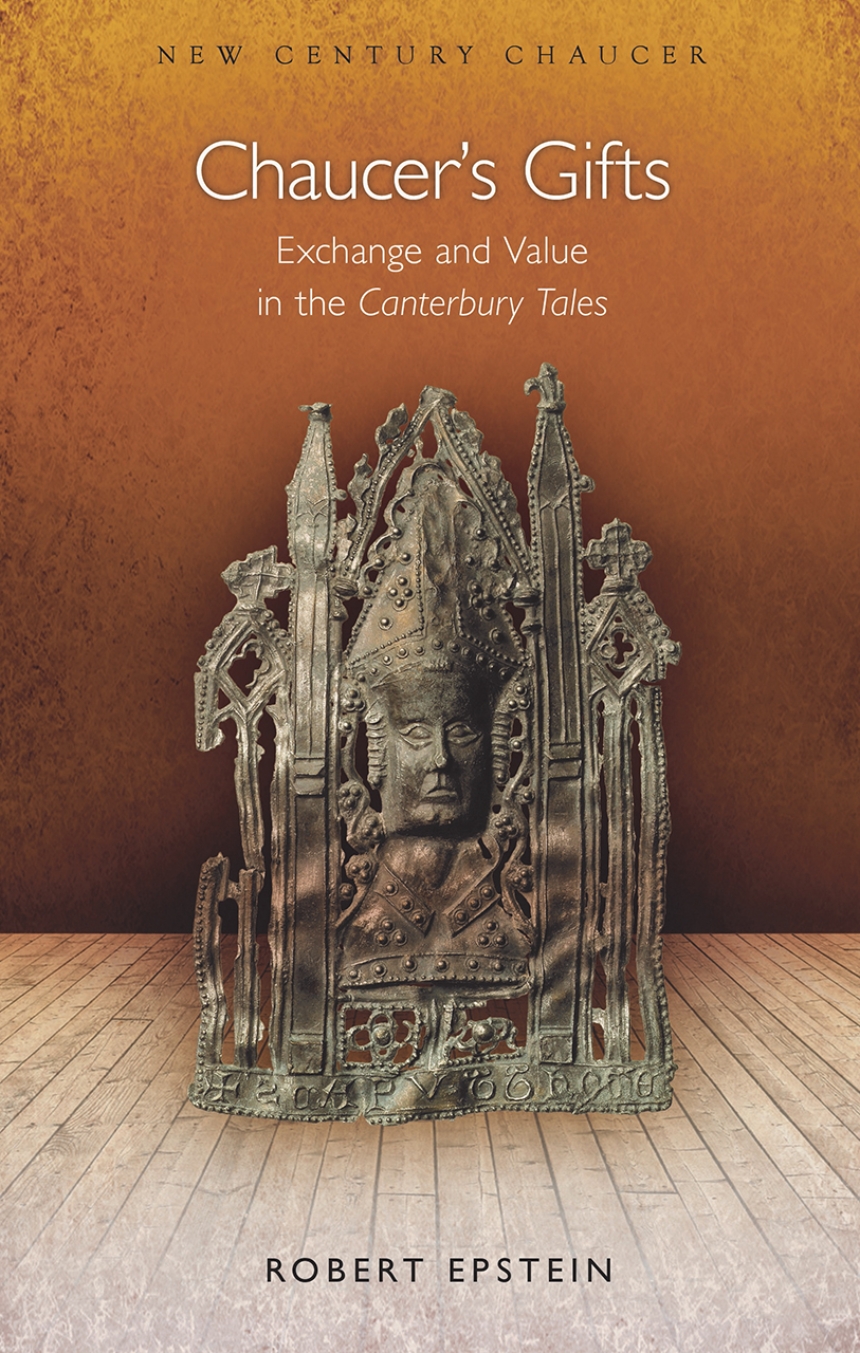Distributed for University of Wales Press
Chaucer’s Gifts
Exchange and Value in the Canterbury Tales
Geoffrey Chaucer’s Canterbury Tales—the most celebrated literary work of medieval England—portrays the culture of the late Middle Ages as a deeply commercial environment, replete with commodities and dominated by market relationships. However, the market is not the only mode of exchange in Chaucer’s world, or in his poem.
In Chaucer’s Gifts, Robert Epstein reveals the complex gift economy at work in the Tales. To explain the network of exchanges and obligations found in the Canterbury Tales, Epstein applies recent advances in gift theory and introduces economic anthropology to medieval literary criticism. He makes the case that the world of the Canterbury Tales harbors deep commitments to reciprocity and obligation that are at odds with a purely commercial culture. Drawing on critiques from some of the most influential anthropologists and theorists, such as Pierre Bourdieu, Jacques Derrida, and Marilyn Strathern, Epstein shows that the market and commercial relations are not natural, eternal, or inevitable—an essential lesson if we are to understand Chaucer’s world—or our own.
In Chaucer’s Gifts, Robert Epstein reveals the complex gift economy at work in the Tales. To explain the network of exchanges and obligations found in the Canterbury Tales, Epstein applies recent advances in gift theory and introduces economic anthropology to medieval literary criticism. He makes the case that the world of the Canterbury Tales harbors deep commitments to reciprocity and obligation that are at odds with a purely commercial culture. Drawing on critiques from some of the most influential anthropologists and theorists, such as Pierre Bourdieu, Jacques Derrida, and Marilyn Strathern, Epstein shows that the market and commercial relations are not natural, eternal, or inevitable—an essential lesson if we are to understand Chaucer’s world—or our own.
Reviews
Table of Contents
Acknowledgements
Introduction: Chaucer’s Commodities, Chaucer’s Gifts
1 The Franklin’s Potlatch and the Plowman’s Creed: The Gift in the General Prologue
2 The Lack of Interest in the Shipman’s Tale: Chaucer and the Social Theory of the Gift
3 Giving Evil: Excess and Equivalence in the Fabliau
4 The Exchange of Women and the Gender of the Gift
5 Sacred Commerce: Clerics, Money and the Economy of Salvation
6 ‘Fly on a thousand pound!’: Debt and the Possibility of Generosity in the Franklin’s Tale
Conclusion
Notes
Bibliography
Index
Introduction: Chaucer’s Commodities, Chaucer’s Gifts
1 The Franklin’s Potlatch and the Plowman’s Creed: The Gift in the General Prologue
2 The Lack of Interest in the Shipman’s Tale: Chaucer and the Social Theory of the Gift
3 Giving Evil: Excess and Equivalence in the Fabliau
4 The Exchange of Women and the Gender of the Gift
5 Sacred Commerce: Clerics, Money and the Economy of Salvation
6 ‘Fly on a thousand pound!’: Debt and the Possibility of Generosity in the Franklin’s Tale
Conclusion
Notes
Bibliography
Index

